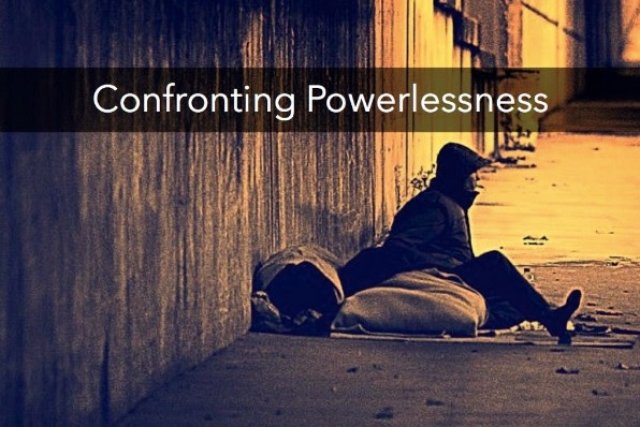Comment nous cherchons à parcourir avec tout le monde vers une relation avec Jésus.
Ce que nous croyons en l’Évangile et notre appel à desservir tous les pays.
Renseignez-vous sur l’équipe de leadership mondial du Cru.
Lorsque l’église mondiale se réunit ensuite puissant choses peuvent arriver.
Entendre ce que d’autres disent de Cru.
Menant de valeurs tellement d’autres marcheront passionnément avec Dieu à croître et à porter ses fruits.
View a list of our authors on Cru.org. These writers and photographers produce much of the great content we have to offer.
Showing God in action in and through His people.
Learn about Worldwide Challenge, the magazine of Cru.
Because ethnicity is part of the good of creation, we seek to honor and celebrate the ethnic identity of those with whom we serve as well as those we seek to reach.
Answers to questions on donations, financial policies, Cru’s annual report and more.
Comprendre comment vous pouvez connaître Dieu personnellement.
Expliquer les connaissances de base sur ce que croient les chrétiens.
Obtenir les réponses aux questions fréquemment posées sur les pratiques et les croyances chrétiennes.
Découvrez les réponses aux questions les plus importants de la vie.
Nous avons tous une histoire. Découvrez les personnes qui ont été transformées par la foi.
Aider les étudiants à connaître Jésus, grandir dans leur foi et allez dans le monde pour dire aux autres.
Connecting in community for the well-being of the city.
Partnering with urban churches to meet physical and spiritual needs.
Atteindre les perdus en se servant de l'outil digital
Reflecting Jesus together for the good of the city.
Equipping families with practical approaches to parenting and marriage.
Prayer is the backbone of all mission activities of the ministry and the key tool to fulfill the Great Commission.
Special Ministries
Explorer les questions de la vie des essais et épreuves pour la datation et le mariage.
Trouver des ressources pour le personnel ou d’un groupe d’étude de la Bible.
Understand evangelism and strategies to help share your faith story.
Help others in their faith journey through discipleship and mentoring.
These are the essential "How To's" which every Christian, newborn or with many years of maturity, needs to know and remember.
Your view of God and His character might be more important than you ever knew. Read more about some of His character traits such as love, absolute truth, faithful, righteous, and all-powerful.
Core Essentials training is designed to deepen your personal walk with the Lord. The lessons cover the basic principles of living a Christian lifestyle.
Prayer, Quiet Times, and Devotional resources from the ministry of Cru.
View our top Cru resources in more than 20 languages.
See a collection of classic Cru material from founder Bill Bright to help you grow in your relationship with Jesus.
Développez vos compétences en leadership et apprenez à lancer un ministère où que vous soyez.
Partenariat avec Cru sur un voyage de missions à court terme.
Possibilités de stage avec les ministères du Cru.
Dernières offres d’emploi à Cru.
Vivre à l’étranger, établissement de relations et ministères avec eternal impact.
Vous souhaitez donner de votre temps pour travailler avec Cru ? Nous avons besoin de vous.
Trouver la liste un emplois avec Cru.
Comment donner une fin du cadeau de l’année à un membre de la Cru ou au ministère.
Nous sommes heureux de vous annoncer le début d’une nouvelle application en ligne combinée pour tous les postes pris en charge.
Utilisez vos loisirs et vos intérêts pour trouver le meilleur endroit pour vous servir.
Internship opportunities with Cru's ministries.
Find your next step and live out your calling with Cru.
Ce que vous faites dans votre vie pour développer la simplicité et la pureté de la dévotion au Christ ? Utilisez ces 3 concepts pour s’engager dans une marche plus profonde avec le Seigneur.
Peut-être plus important que de comprendre les signes d’alerte, les dirigeants doivent un plan et une stratégie pour éviter les écueils que menant d’autres peut apporter.
Découvrez la vérité de la vie, remplis de l’esprit, avec des ressources sur la façon d’être rempli, marcher avec et l’expérience de l’Esprit Saint.
Si vous êtes une infirmière, un avocat ou vous avez été sur la lune, Dieu unique vous a donné des chances d’être généreux avec votre vie et d’exprimer sa générosité.
J’ai appris 6 principes pour me guider car je cherche la volonté de Dieu dans toutes les situations
Prendre la prochaine étape dans votre voyage de foi avec les dévotions, les ressources et les vérités de base.
Découvrez comment faire l’expérience de la vie abondante et féconde promise par Jésus comme le résultat d’être dirigées et empowerd par l’Esprit Saint.
Dr. Bill Bright a écrit ces articles à la création de Campus Crusade for Christ comme un moyen facile de transférer les vérités essentielles de la foi à un jeune croyant.
Il existe des signes avant-coureurs si vous savez où regarder pour voir si vous, ou un dirigeant proche de vous, est à risque de burnout ou échec même moral.
Explore resources to help you live out your life and relationships in a way that honors God.
See a collection of classic Cru material from founder Bill Bright to help you grow in your relationship with Jesus.
Have some fun taking various quizzes and assessments to learn about yourself and others.
What does it take to grow in your walk with God?
What does it take to grow in your walk with God?
What does it take to grow in your walk with God?
See a collection of classic Cru material from founder Bill Bright to help you grow in your relationship with Jesus.
Have you ever wondered what God is like? Your view of God and His character might be more important than you ever knew. Everything about your life is influenced by your perception of who He is.
Have you ever wondered what God is like? Your view of God and His character might be more important than you ever knew. Everything about your life is influenced by your perception of who He is.
Have you ever wondered what God is like? Your view of God and His character might be more important than you ever knew. Everything about your life is influenced by your perception of who He is.
Sign up for the "I Still Believe" discussion guide.
Sign up for the "Just Mercy" discussion guide.
Explore resources to help you live out your life and relationships in a way that honors God.
Have some fun taking various quizzes and assessments to learn about yourself and others.
by Daniel Du — 27 April 2016

I recently enjoyed a short but much-needed weekend reunion with some of my old friends from college when I flew to Texas for a wedding. We got to reminisce and celebrate together. I got to catch up with people who care about me and support me. It was an environment where I truly felt loved and known. I was sitting in the airport waiting for my flight back to New York and a slow sadness came over me. I realized that I didn’t want to come back to this city. Once having an excitement for big dreams of changing the world here was overshadowed instead by the prospect of returning to a city that had surfaced so much pain and yielded so much uncertainty, anxiety, and loneliness. I was scared to return to a place that had made me feel so weak and powerless.
 Though I have witnessed the power and authority of Christ in my life work itself out in amazing ways in this city, the space in between those moments of glory – the many examples of all that I’m unable to accomplish, to change, and to speak into – feels magnified. My frustration of my powerlessness in these spaces feels intensified. Injustice, pain, hopelessness, fear, and distrust seem to be prevailing narratives of this city, and like that 70 degree weather that comes and goes in the middle of a long winter, my trip out of the city revealed glimpses of hope and joy that I wish I could have held onto longer. Faced with these thoughts and emotions, I realized how deeply I’ve been experiencing a ‘poorness in spirit’ as my heart aches for renewal.
Though I have witnessed the power and authority of Christ in my life work itself out in amazing ways in this city, the space in between those moments of glory – the many examples of all that I’m unable to accomplish, to change, and to speak into – feels magnified. My frustration of my powerlessness in these spaces feels intensified. Injustice, pain, hopelessness, fear, and distrust seem to be prevailing narratives of this city, and like that 70 degree weather that comes and goes in the middle of a long winter, my trip out of the city revealed glimpses of hope and joy that I wish I could have held onto longer. Faced with these thoughts and emotions, I realized how deeply I’ve been experiencing a ‘poorness in spirit’ as my heart aches for renewal.
It is lonely, humbling, and tiring to admit these things. Especially in a city with big vision and drive. In Christian circles, no one wants to stay poor in spirit for long. It almost feels like we give space for suffering and sadness one minute, but move on to bigger, better, more exciting things the next, leaving just enough time to feel the cathartic release of confession without the time and space to wade in these things together. I’ve experienced a quickness to offer platitudes and tie neat little bows on circumstances. We are quick to jump to how things should be, how we should feel, and the answers we should arrive to.
Yet as I seek the face of God, I’m pointed to people like David who lived for years in the tension of having been anointed king, but was seemingly stuck in a situation of running, living in caves, and being powerless to change his circumstances. I’m pointed to John the Baptist who, having baptized Jesus, was powerless to speak to the heart of King Herod, asked to preach in his court only to tickle Herod’s ear, and was ultimately beheaded. I look at scripture, and I see Jesus leading people where they don’t want to be led. I feel angry when God points to these things because it’s not what I want to hear or what I want my faith journey to be like. Seeing what a life of surrender and faith really looked like for the “man after God’s own heart” and for the “greatest man born on earth” is frustratingly discouraging, yet also speaks validity and solidarity to the powerlessness I feel. It points to the need to sit in that powerlessness, to wrestle with God’s goodness in it, and, in brief moments of clarity, to be thankful for the character formation happening because of it.
Led to a place in my own journey of living in caves and being faced with the Sauls and Herods in my life, I pray for an authentic cultivation of vulnerability and authenticity, rather than a desperate desire to control or escape. I think of the story in Acts where Paul and Silas are in prison. Even when the shackles are released miraculously, they stay the night to minister to the guards. They sang praises amidst being shackled and they knew of their authority both in freedom and as prisoners. I pray for comfort in the fact that God Himself aligns and identifies not with those with power or agency, but with those who are poor in spirit to whom He promises keys to His Kingdom. And as I pray into God’s heart, I also pray to be able to live out the rest of the beatitudes. May I give space to mourn and grieve well. May God cultivate meekness in my heart as I crave what is good and righteous. May I be a peacemaker and not hurt others in my pain. The night after Paul and Silas stayed in that prison, they received a parade out of the city because of their status as Roman citizens. God, may I await the fanfare and parade of being escorted to Your arms as a citizen of Your Kingdom.

Previous Posts:
• Even in the Rain
• Living God's Love
• Love That Sees
• More Than Candy
• Farewell, Dear Friend
 Daniel Du serves on Cru's field staff reaching millennials in New York City.
Daniel Du serves on Cru's field staff reaching millennials in New York City.
Toust droit reservé